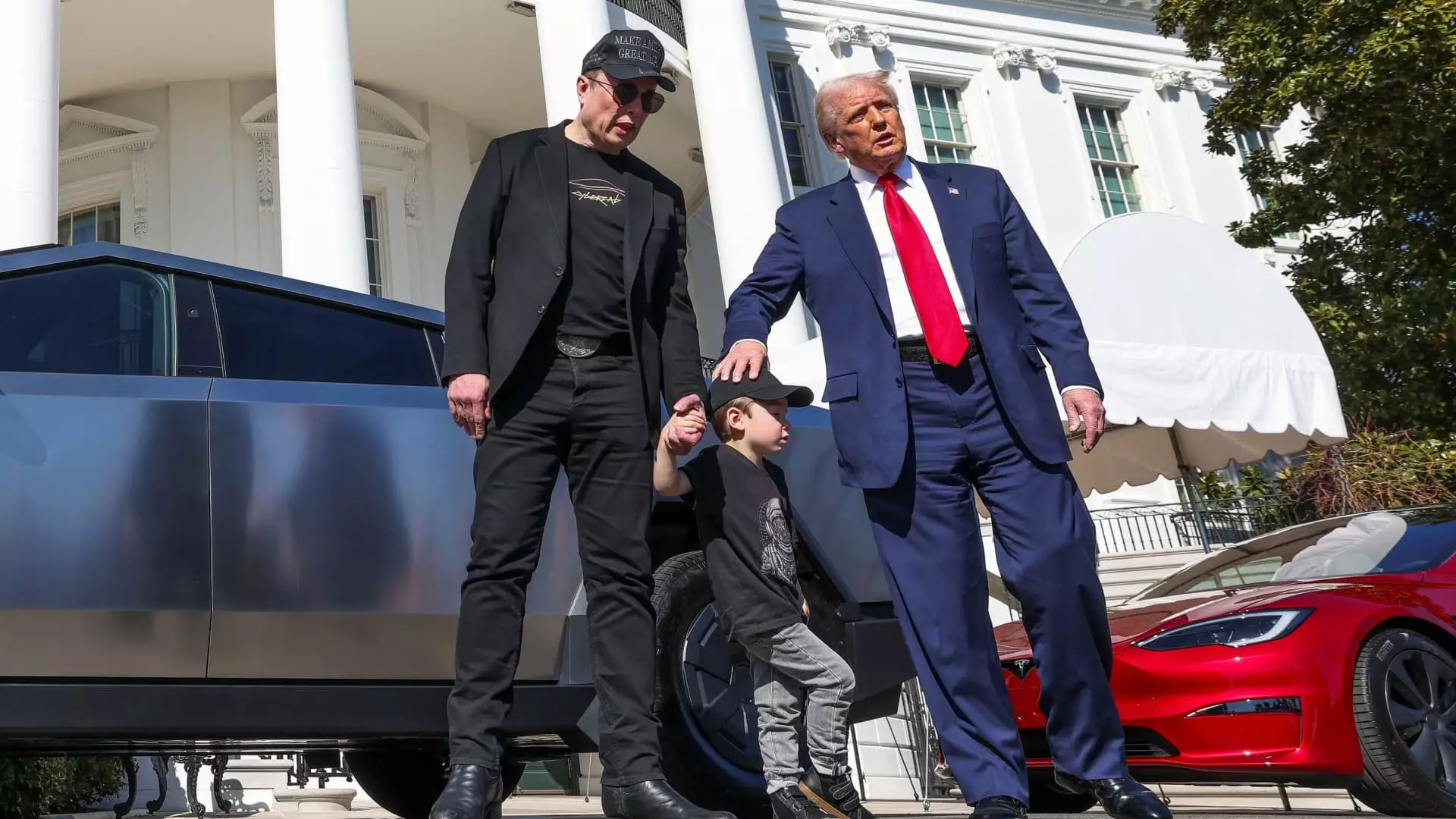In an era defined by economic unpredictability, Elon Musk, the face of innovation and disruption, finds himself threading a complex needle with regard to tariffs. During a recent earnings call, Musk unveiled his discomfort with high and unpredictable tariffs, while simultaneously acknowledging that the power to influence such policies rests entirely in the hands of the President of the United States. This reality illustrates a crucial dilemma not only for Musk and Tesla but for many businesses navigating the turbulent waters of international trade. His comments reflect a common frustration amongst industry leaders who thrive on stability yet operate in an environment of shifting policy landscapes.
Musk’s contention that Tesla is less susceptible to these tariff-related disruptions compared to other automakers speaks volumes about the company’s strategic decision-making. With localized supply chains in regions like North America, Europe, and China, Tesla presents itself as a formidable player insulated from some tariff consequences. However, the optimistic façade is marred by alarming quarterly reports; a staggering 20% dip in automotive revenue and a catastrophic 71% tumble in net income signal that despite his company’s structural advantages, it is not immune to the macroeconomic forces at play.
Disruption Amidst the Deterioration
Despite being heralded as an innovative leader, Musk’s recent financial disclosures portray Tesla’s vulnerability. The company is not merely fighting against tariffs; it’s wrestling with the market’s shot across the bow, a stark realization that no enterprise, no matter how forward-thinking, can remain unscathed in a chaotic economy. The contrast between Musk’s confidence and Tesla’s financial performance prompts serious introspection about the sustainability of his expansive vision. Market volatility is harshly unforgiving, especially when stock values plummet—36% during the first quarter alone, an alarming deterioration that appears to contradict Musk’s bold assertions of resilience.
Musk’s tightrope walk with the administration is particularly fascinating. Although he is regarded as a trusted adviser to former President Trump, the dichotomy of opinion on trade policies sets Musk apart. His blunt dismissal of Peter Navarro, Trump’s trade czar, as “dumber than a sack of bricks,” indicates a fracture in their previously harmonious relationship, particularly concerning tariffs. Revealingly, Musk’s words reflect a growing awareness that unbridled loyalty to a political figure may not yield favorable outcomes when such figures implement harsh economic policies that could hinder business growth.
Trade, Tariffs, and Tesla’s Future
Moreover, the complexity of Musk’s situation is underscored by the substantial need for raw materials, particularly lithium iron phosphate (LFP) battery cells sourced from China. With tariffs threatening to inflate costs and possibly stifle supply chains, the very foundation of Tesla’s dominance in the electric vehicle sector hangs precariously. As he candidly admitted during the earnings call, the company is expanding its footprint with local manufacturing in the U.S. for these vital components. However, this long-term vision clashes head-on with present-day realities where Tesla can only cater to a fraction of its demands, emphasizing the urgent need for a reliable supply chain that sidesteps global volatility.
The fight for materials and parts in a world of unpredictable tariffs illustrates a broader concern; the sanctity of free trade and lower tariffs must not be trivialized. Musk’s advocacy for a “predictable tariff structure” is not just a personal opinion; it encapsulates the challenges faced by businesses striving for growth in a milieu focused on protectionism. His lament over increased tariffs acting as obstacles echoes a sentiment felt by countless firms that find themselves in the crosshairs of policy changes.
In Search of a Stable Trade Environment
As Tesla grapples with the repercussions of these systemic shocks, the call for a more stable trade environment becomes critical. In a world where businesses are expected to innovate rapidly, the unpredictability of tariffs introduces an unnecessary layer of complexity. It stifles ingenuity at a time when creativity and adaptability should reign.
Musk’s experience encapsulates the increasing tension between innovative ambition and rigid tariff regimes. While he remains a titan of the tech industry, the pitfalls of operating amidst fierce tariffs and an unpredictable political landscape remind us that prosperity is often contingent upon factors beyond any one leader’s control. As this saga unfolds, it becomes abundantly clear that for innovators like Musk, finding a way through the storm of tariffs is not just about leadership; it’s about survival in a battlefield characterized by constant change.


Leave a Reply